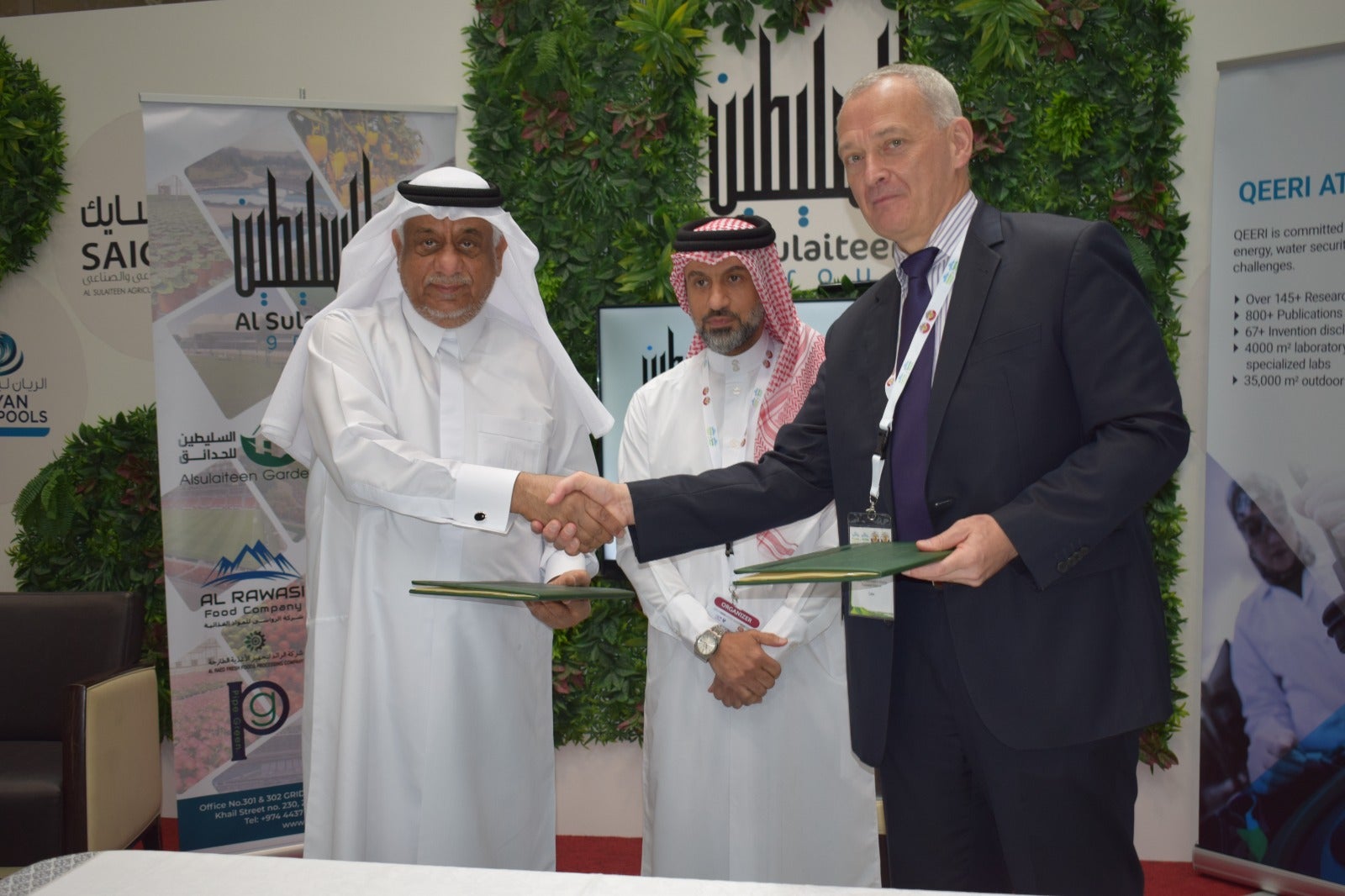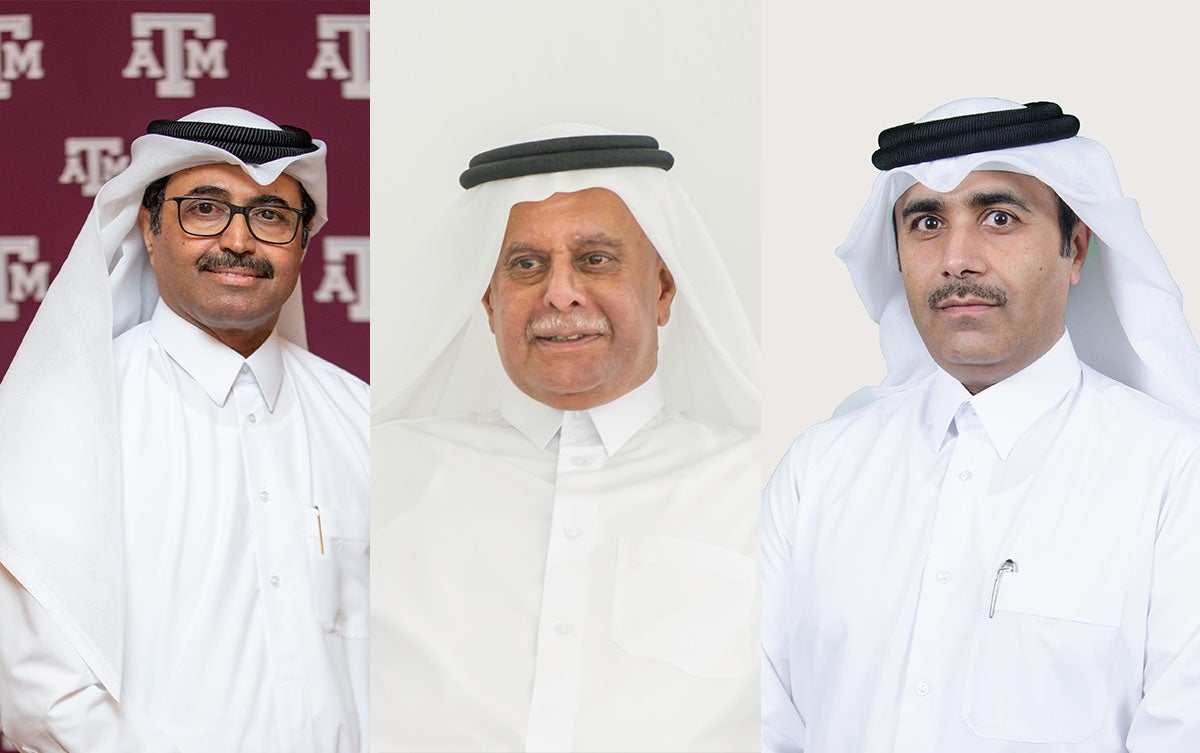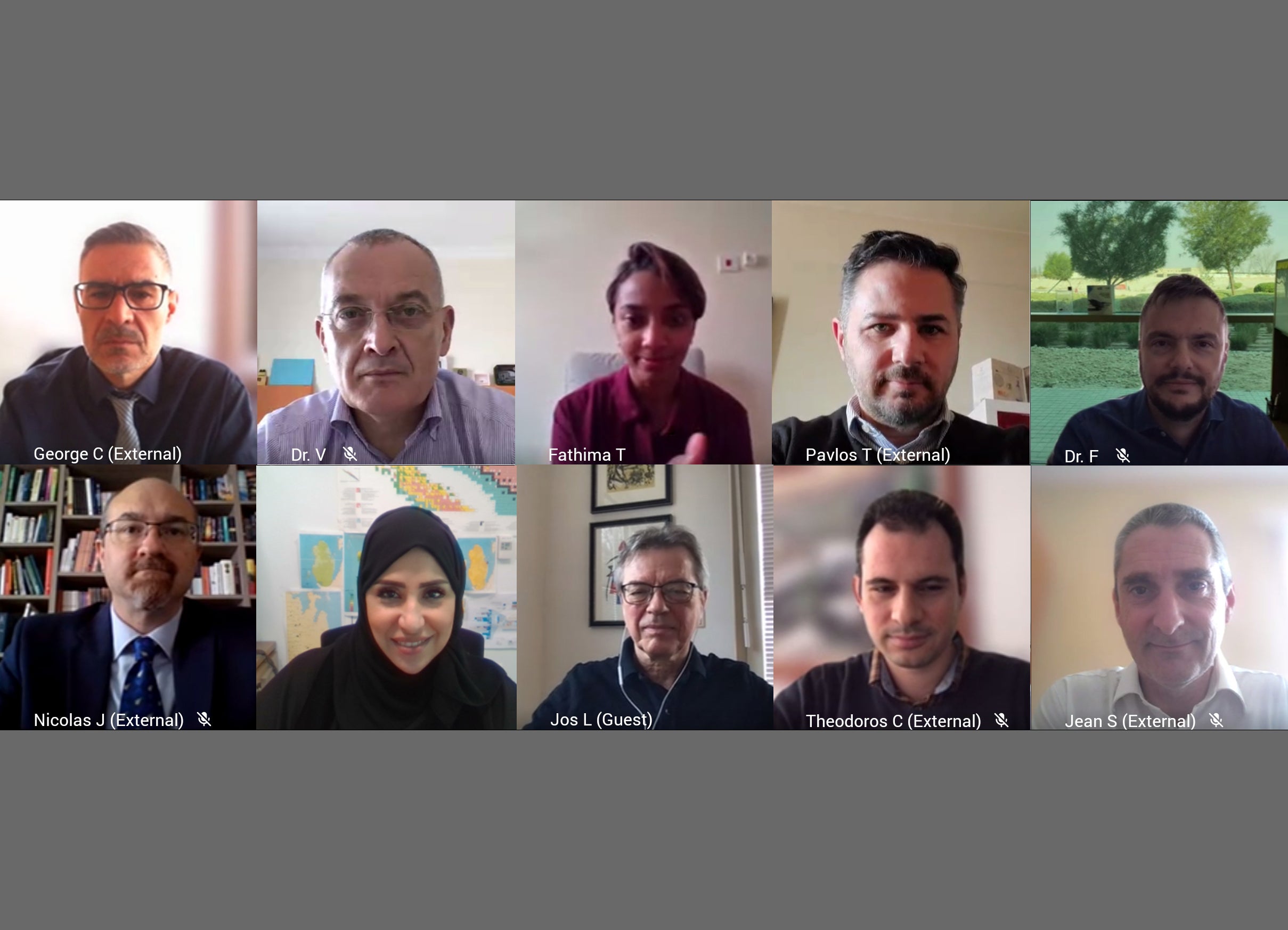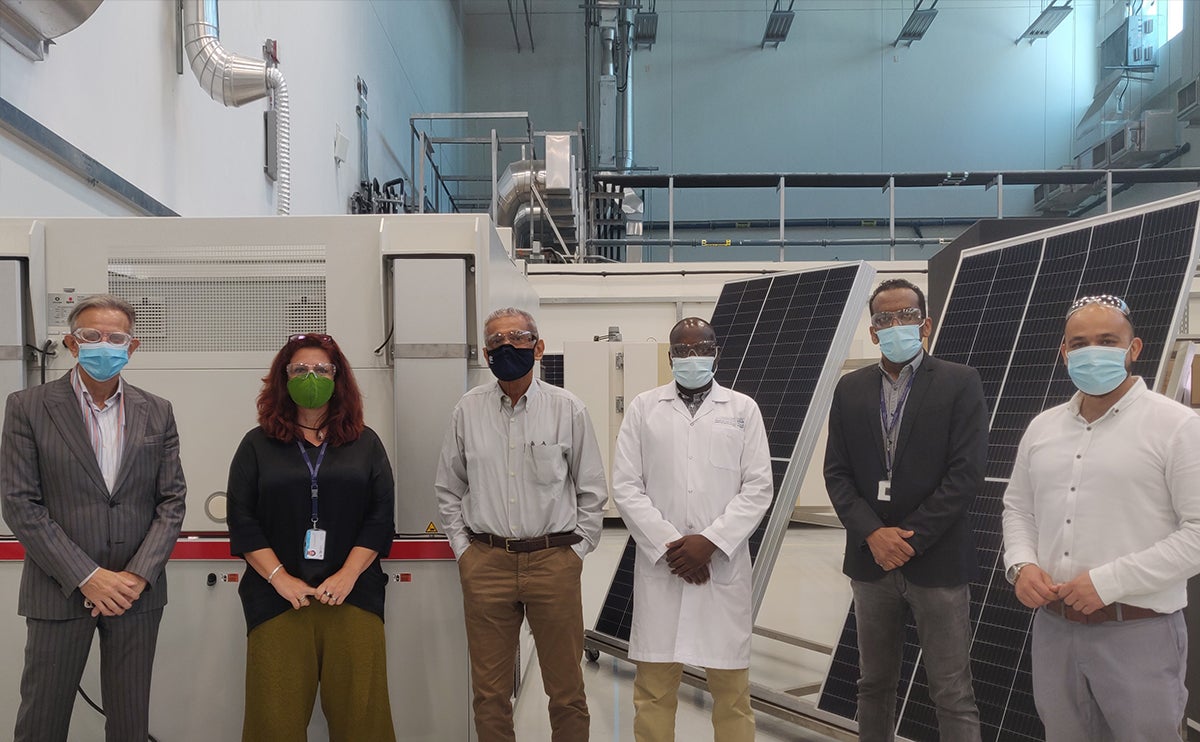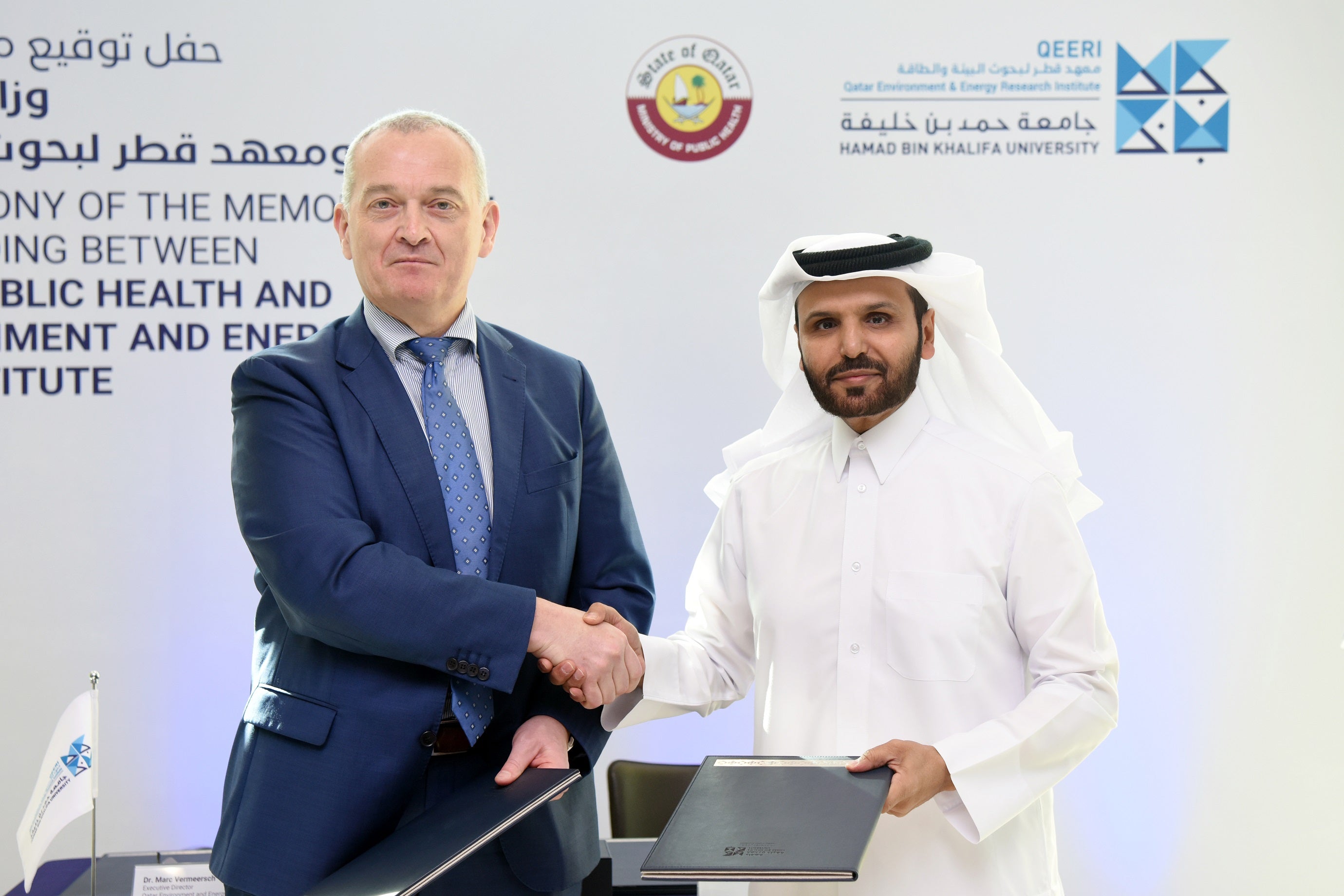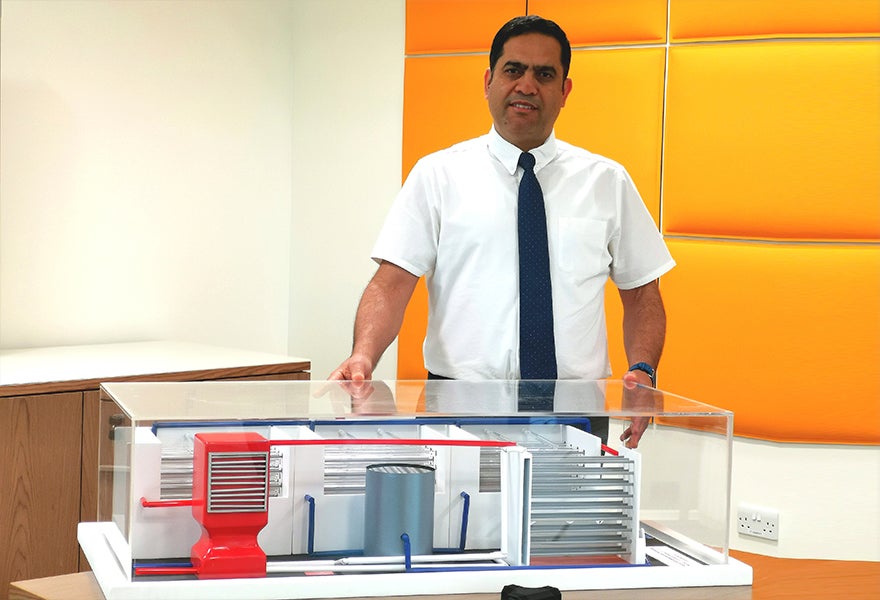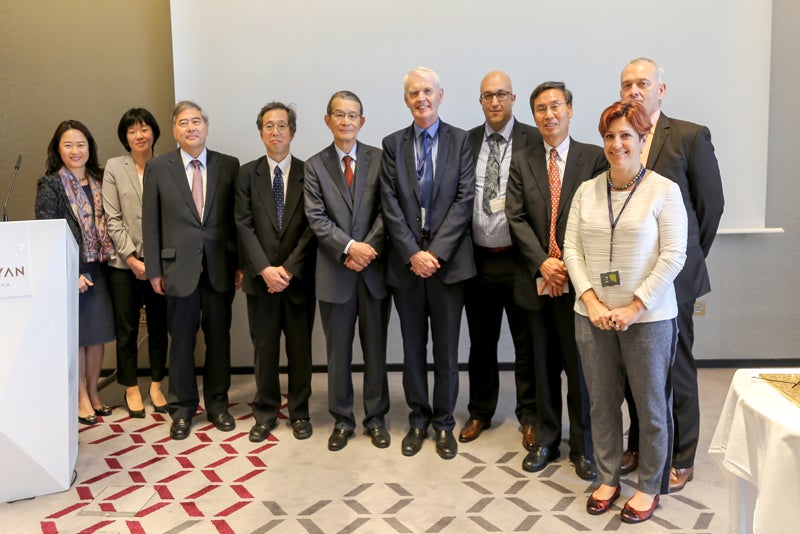Research agreement provides for QEERI to study atmospheric corrosion challenges for the new plants.
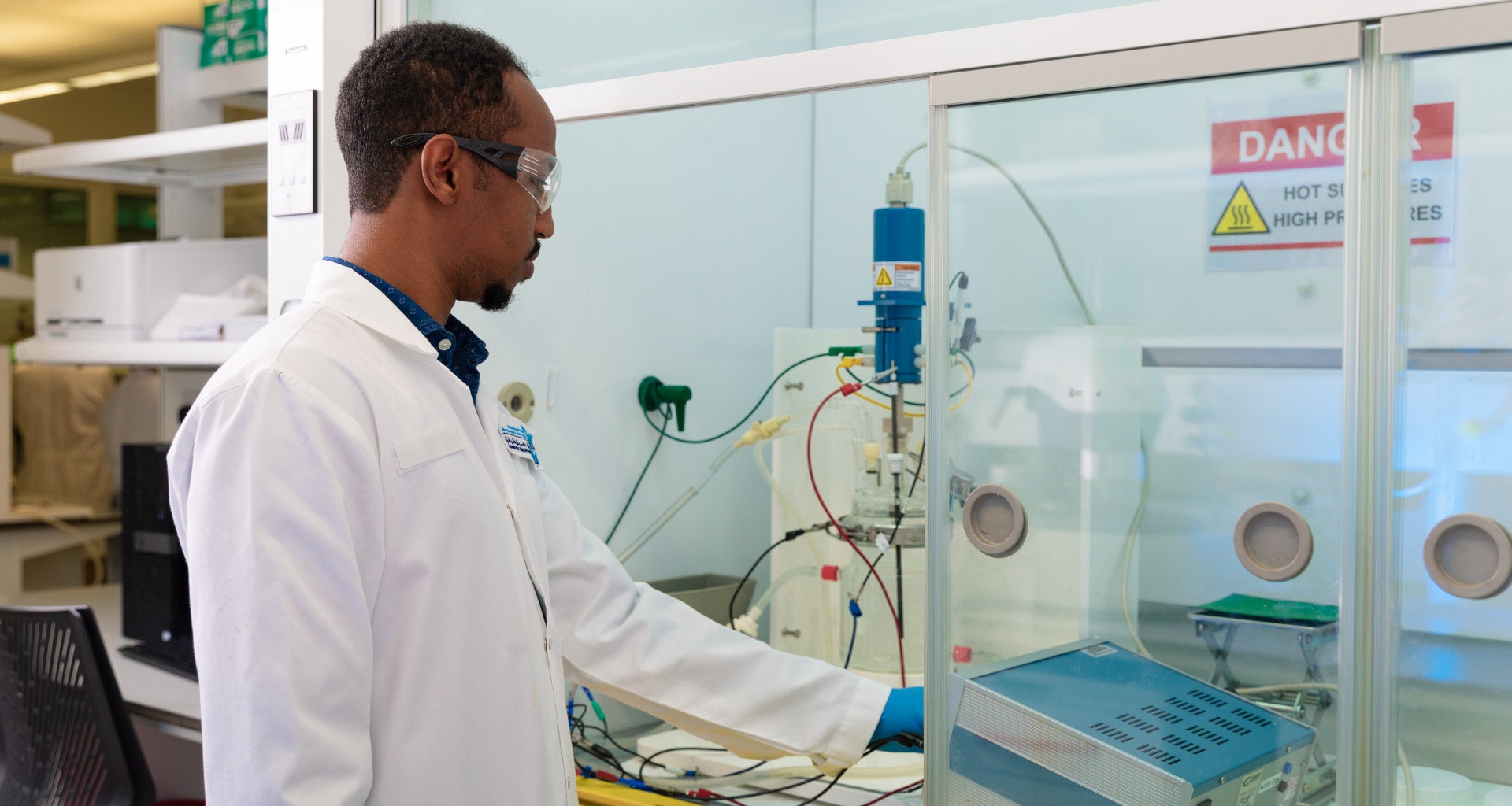
Qatar Environment and Energy Research Institute (QEERI), part of Hamad Bin Khalifa University (HBKU), continues to leverage its advanced expertise to support national investments in renewable energy infrastructure. QEERI recently signed a research agreement with Samsung C&T Engineering and Construction Group that will support the construction of two mega solar power plants for QatarEnergy Renewable Solutions.
The QEERI Corrosion Center will be providing a corrosion study aimed at determining the corrosivity classification based on atmospheric corrosion for the two new photovoltaic (PV) farms, in Ras Laffan Industrial City and Mesaieed Industrial City. Atmospheric corrosion is the degradation and destruction of metallic materials due to interactions with air temperature, humidity, air chemistry, and climatic values.
Samsung C&T is the exclusive engineering, procurement, and construction contractor of the solar plants and will install 1.6 million solar panels. The two plants are expected to generate 875 megawatts (MW)s of clean energy and are set to be completed by 2024. This project is fully in line with Qatar’s aim of increasing the country’s reliance on renewable energy under the National Climate Change Action Plan and the environmental pillar of the National Vision.
In this area, QEERI has widely disseminated research that shows how, despite the abundant potential for solar PV power plants in desert environments, their maximum efficiency is heavily affected by environmental conditions, including the combination of humidity and dust. QEERI’s capabilities - as an institute with a mandate that supports research, development, and innovation (RDI) - contribute solutions for key industries to overcome some of these severe challenges to their sustainability efforts. QEERI established the Corrosion Center as the first national-level center focusing on solving the corrosion challenges facing the country. Since its incubation, the Corrosion Center has been working closely with Qatar’s industry to tackle critical corrosion challenges.
Dr. Hanan Farhat, Senior Research Director of QEERI’s Corrosion Center, explained: “Corrosion plays a major role in the integrity of structures in both urban and industrial environments. The atmospheric conditions in Qatar are particularly challenging to even the most robust engineering materials. Proper material selection and corrosion protection are crucial at the design stage to ensure the longevity of every project. Such selections are conducted based on corrosion studies using field data and considering design and process parameters.”
Dr. Farhat added: “What makes us unique at QEERI’s Corrosion Center, is that we combine industrial engineering experience, a diverse research portfolio, and state-of-the-art facilities to develop research and innovative projects that are very representative of conditions here in Qatar.”
Commenting on the study for Samsung C&T, Dr. Marc Vermeersch, QEERI Executive Director, said: “With this agreement, QEERI Corrosion Center continues to integrate research activities with support for national priorities. Our aim is for industry to be able to capture the benefits of QEERI’s scientific knowledge and unique capabilities through targeted, appropriate solutions. Ultimately, these efforts aim to expand the science, technology, and knowledge available to stakeholders for solving corrosion challenges and advancing sustainability projects.”
For more information on the work of Qatar Environment and Energy Research Institute, please visit hbku.edu.qa/en/qeeri






